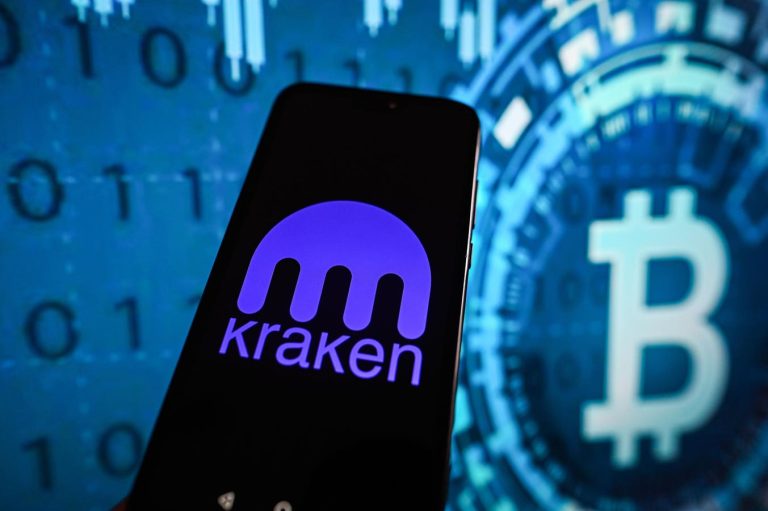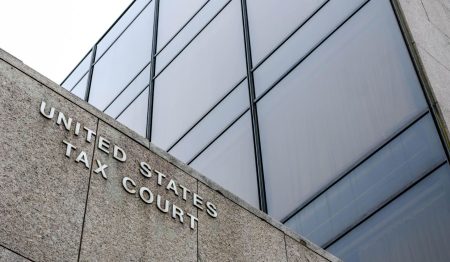Cryptocurrency exchange Kraken has notified clients that the company will turn over user information to the IRS. The announcement follows a lengthy legal battle that began in 2021 when Kraken received a John Doe summons from the IRS.
A John Doe summons is an order that does not explicitly identify the person but instead identifies a person or ascertainable group or class by their activities. To justify a John Doe summons, the IRS must explain why the agency is requesting the info—in this case, it’s not sure whether any particular Kraken customers had failed to properly report income but assumed, based on high rates of cryptocurrency trades, that many taxpayers had failed to report taxable cryptocurrency transactions.
According to court documents, that evidence includes a 2019 study using data from 2011-2013 indicating that the overall rate of underreporting of income not subject to third-party information reporting was 55%, compared to just 5% for amounts subject to information reporting but no withholding (think of Form 1099), and 1% for amounts subject to information reporting and withholding (such as a Form W-2).
The IRS also cited statistics indicating that only 800 to 900 taxpayers per year filed tax returns with a property description related to bitcoin or virtual currency in the period between 2013 and 2015, even though Coinbase, another cryptocurrency exchange, had “serviced more than 5.9 million customers and handled more than $6 billion in transactions” in the same period. According to the IRS, the number of taxpayers reporting cryptocurrency transactions has increased since that time. It’s grown from 4,164 taxpayers in 2016 to 842,888 in 2021, though the agency notes “these numbers still fall far short of what would be expected given the number of users, transactions, and value that the virtual currency exchanges publicize occur on an annual basis.”
What IRS Wanted
While the actual identities of the parties are unknown, the IRS knows exactly what information it wants. Specifically, the IRS is seeking information on “United States persons who, directly or indirectly had authority over any combination of accounts held with Payward Ventures, Inc., d/b/a Kraken or Kraken.com, or its predecessors, subsidiaries, divisions, or affiliates (collectively, ‘Kraken’) with at least the equivalent of $20,000 in value of transactions (regardless of type) in cryptocurrency in any one year, for the period Jan. 1, 2016 through Dec. 31, 2020.”
Initially, Kraken refused to turn over the data, arguing, among other things, that the summons was overbroad. As a result, the government filed a petition to compel Kraken to comply with the summons. A hearing on the matter was held on June 9, 2023.
What IRS Got
In the end, Judge Joseph C. Spiro largely sided with the government, granting the petition in part. As a result, Kraken will turn over the following data for users with any combination of accounts that exceeded $20,000 in value of transactions in any year for the period Jan. 1, 2016, through Dec. 31, 2020:
- Name (including full name, any pseudonym, or any user ID);
- Date of Birth;
- Taxpayer Identification Number;
- Physical Address;
- Telephone Number;
- Email Address; and
- Transaction history for 2016 to 2020.
The $20,000 threshold for covered accounts is determined by the sum of deposits, withdrawals, and trades. This means that even if you did not make any trades, if your deposits and withdrawals totaled more than $20,000, your information will be shared.
According to the exchange’s website, Kraken expects to share the information required by the court’s order beginning this month, November 2023. The company also noted that it would not share information with the IRS beyond what it must provide under the court order.
A Kraken spokesperson said, about the summons, “One of Kraken’s guiding principles is maintaining our clients’ security and privacy. We objected to the IRS’s demands and fought the summons, because it sought intrusive and unnecessary information about U.S. clients, including IP addresses, employment information, sources of wealth, net worth, and banking details. We convinced the court to reject these demands. However it did order Kraken to produce other limited data for some clients, who have been notified via email. Kraken will always stand up for the privacy of its clients as it did here.”
Background
This is one of the most extensive successful attempts—but certainly not the first—by the government to obtain data. The IRS has, over the past few years, made seeking out crypto users who are not reporting transactions a priority. This was clear in court papers in the Kraken matter, where IRS Revenue Agent Karen Cincotta noted, “The IRS is conducting an investigation to determine the identity and correct federal income tax liability of U.S. persons who conducted transactions in cryptocurrency for the years ended Dec. 31, 2016, 2017, 2018, 2019, and 2020,” adding, “the IRS, in recent years, has become aware of significant tax compliance issues relating to the use of virtual currencies, including cryptocurrencies.”
This isn’t news to users on some platforms, including Coinbase. In 2016, the IRS began seeking the authority to serve John Doe summonses on Coinbase. As noted earlier, a John Doe summons does not explicitly identify the person but instead identifies a person or ascertainable group or class by their activities. Examples include investors in a particular tax shelter or account holders at a defined financial institution—the IRS has used the procedure when seeking information about offshore accounts related to the UBS investigation, PayPal accounts, and various credit card companies.
It’s controversial, clearly, because of the potential privacy issues—as part of the summons process, no notice is required to be given to the potentially affected parties (meaning the taxpayers who are being investigated). To curb the potential for abuse, the IRS’ manual makes it clear that the request should be to further a specific purpose and not to conduct a “fishing expedition.” In other words, there must be a reasonable basis for believing that the person or persons involved “may fail or may have failed to comply with any provision of the tax laws.” Additionally, the information and identities sought from summoned records must not be readily available from other sources.
Coinbase Litigation
The initial request for records in the Coinbase matter was focused on records for users who transferred convertible virtual currency at any time between Dec. 31, 2013, and Dec. 31, 2015, with “any U.S. address, U.S. telephone number, U.S. email domain, or U.S. bank account.” Initially, the government won the right to issue the summonses.
Coinbase appealed and, after a very public back and forth with the government, eventually posted on its website that “On Feb. 23, 2018, Coinbase notified a group of approximately 13,000 customers concerning a summons from the IRS regarding their Coinbase accounts.” The notice directed readers to the Order.
What Came Next
The IRS acted quickly to capitalize on the win—and the publicity. In 2019, the IRS began sending letters to taxpayers with virtual currency transactions that potentially failed to report income and pay the resulting tax from virtual currency transactions or did not report their transactions properly.
That same year, the IRS added a question about virtual currency to Form 1040. The original version of the question appeared on Schedule 1. The following year, 2020, the IRS changed the wording a bit and moved the question to a more prominent spot on the front of Form 1040, where it currently sits. The question now reads, “At any time during 2022, did you: (a) receive (as a reward, award, or payment for property or services); or (b) sell, exchange, gift, or otherwise dispose of a digital asset (or a financial interest in a digital asset)?”
The following year, in 2021, the IRS launched “Operation Hidden Treasure.” Operation Hidden Treasure is a partnership between the IRS’ Office of Fraud Enforcement and IRS-Criminal Investigation and is focused on cryptocurrency tax and related noncompliance by taxpayers.
The IRS has also been successful in other matters seeking legal records. On Aug. 15, 2022, a California federal court authorized the IRS to serve a John Doe summons on SFOX, a cryptocurrency prime dealer headquartered in California, seeking information about U.S. taxpayers who conducted at least $20,000 in crypto transactions between 2016 and 2021 with or through SFOX. Another set of John Doe summons was authorized on Sept. 22, 2022, requiring M.Y. Safra Bank, headquartered in New York, to produce similar information targeting customers who might have used banking services that M.Y. Safra Bank offered to SFOX customers. According to the government, SFOX partnered with M.Y. Safra to offer SFOX users access to cash-deposit bank accounts, and SFOX could use their funds at M.Y. Safra to buy and sell positions in virtual currency from SFOX. As part of its argument, the IRS noted that investigations had identified at least 10 U.S. taxpayers who used SFOX’s services for cryptocurrency transactions but failed to report those transactions to the IRS.
Next Steps
What should taxpayers do? If you have questions about your reporting requirements related to tax and cryptocurrency, or other virtual currency, it’s best to consult with a tax professional. The IRS also has a webpage dedicated to digital assets where it answers FAQs and issues occasional guidance.
Finally, taxpayers with reportable cryptocurrency transactions—including those taking positions that could be challenged—should keep excellent records. That includes receipts, sales, exchanges, or other dispositions of virtual currency and the fair market value of the virtual currency.
Read the full article here








